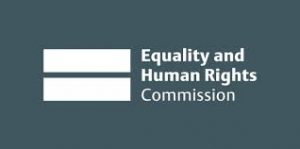
By John Pring Disability News service 23rd February 2017
The equality and human rights watchdog has refused to withdraw its report to the UN on the implementation of its disability convention, despite omitting vital information that links government ministers with the deaths of benefit claimants.
Only two weeks ago, three national disabled people’s organisations were forced to withdraw their own report to the UN, after admitting that their document failed to speak out strongly enough on links between the government’s welfare reforms and the deaths of disabled people who had been denied the benefits they needed.
Disability Rights UK, Disability Wales and Inclusion Scotland agreed to strengthen their “shadow” report and resubmit it to the UN’s committee on the rights of persons with disabilities (CRPD), after the omissions were highlighted by Disabled People Against Cuts (DPAC) and Disability News Service (DNS).
But now the Equality and Human Rights Commission (EHRC) – which funded the trio’s shadow report – has admitted that its own report to the UN has left out some of the same key pieces of evidence.
This report was submitted by the UK Independent Mechanism (UKIM) – made up of EHRC, the Equality Commission for Northern Ireland, the Northern Ireland Human Rights Commission and the Scottish Human Rights Commission – which is tasked with monitoring and promoting the implementation of the UN Convention on the Rights of Persons with Disabilities (UNCRPD) in the UK.
The UKIM report was sent to CRPD as part of the process which will lead to the UK government being questioned in public later this year on its progress in implementing the convention.
But although it says that work capability assessments (WCAs) – which test eligibility for out-of-work disability benefits – “have been linked to some suicides and cases of deteriorating mental health”, the UKIM report fails to mention two Prevention of Future Deaths letters written by coroners to the Department for Work and Pensions (DWP), in late March 2010 and in early 2014.
Both of those letters link flaws in the WCA process to the deaths of benefit claimants with mental health conditions.
The first PFD report was written just weeks before the coalition government took power, but no action was taken by ministers on the coroner’s recommendations and the letter was not passed to the independent expert reviewing the WCA for DWP.
The various documents omitted by UKIM show that other disabled people continued to die as a result of ministers’ failure to ensure that the necessary medical evidence is secured when a claimant has a mental health condition.
The UKIM report also fails to mention a document written by Scotland’s Mental Welfare Commission (MWC), which linked flaws in the WCA and the death of Ms DE, a claimant with a mental health condition, in December 2011.
An EHRC spokesman admitted that those three piece of evidence have been left out of the report.
But he said the UKIM report had included a link to government-funded research by public health experts from the Universities of Liverpool and Oxford, which concluded in late 2015 that the programme to reassess people on incapacity benefit through the WCA was linked to 590 suicides in just three years.
But when asked why it had ignored the three pieces of key evidence, which together link ministers with the deaths of benefit claimants, the EHRC spokesman said: “Because another source [the Liverpool and Oxford research report] was used that provided the same information, which was making the same substantive point.
“For this reason, our submission will remain as it stands.”
DPAC said it was “extremely concerned” by the omission, and wrote to EHRC this week to ask why it had omitted the “essential information” from its report.
Members of DPAC’s steering group subsequently took part in a telephone conference call with an EHRC executive.
Linda Burnip, co-founder of DPAC, said: “DPAC are deeply concerned that specific pieces of evidence which link the WCA to unnecessary claimant deaths have not been highlighted in any way by EHRC.
“As they are the official monitoring body for the CRPD we feel this is totally unsatisfactory.
“Two of the shadow reports – for DR UK and EHRC – have been produced by non-disabled people and more or less ignore the issues that are important to disabled people.
“That the EHRC report summarized their perception of problems with the WCA process in 11 lines illustrates this point.
“There is no sense of urgency in their report. These are people who have a cushy job and want to keep it.
“The mindset is that this is a technical, bureaucratic thing, not that it is really happening to actual disabled people.
“Or worse, if it is happening to real disabled people it doesn’t really matter as long as the word limit [of their report] isn’t exceeded.”
The EHRC spokesman said: “Our report, produced jointly with other members of the UK Independent Mechanism, clearly raises concerns about deaths linked to work capability assessments.
“In particular, the report points to a recently published study of the link between the work capability assessments and deteriorating mental health and deaths.
“As an independent, UN-accredited National Human Rights Institution, we have recommended that [CRPD] asks the UK government how it is ensuring that processes in place to deliver employment and support allowance, including work capability assessments, are compliant with the [UNCRPD].
“For these reasons, our submission will remain as it stands.
“We would encourage any organisation wishing to put forward additional evidence to submit this to [CRPD] by 27 February.”
